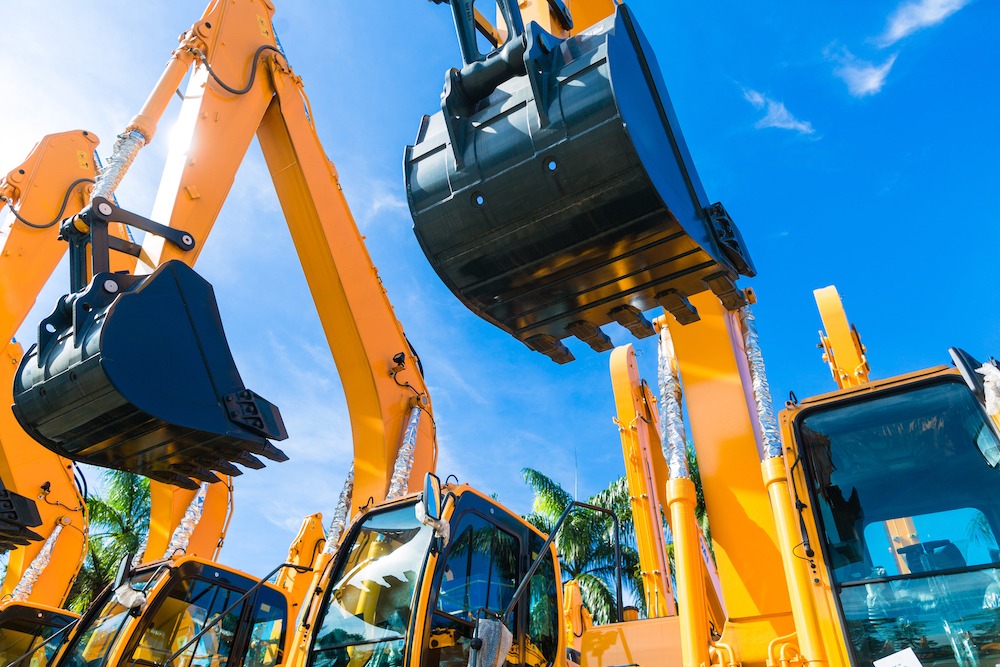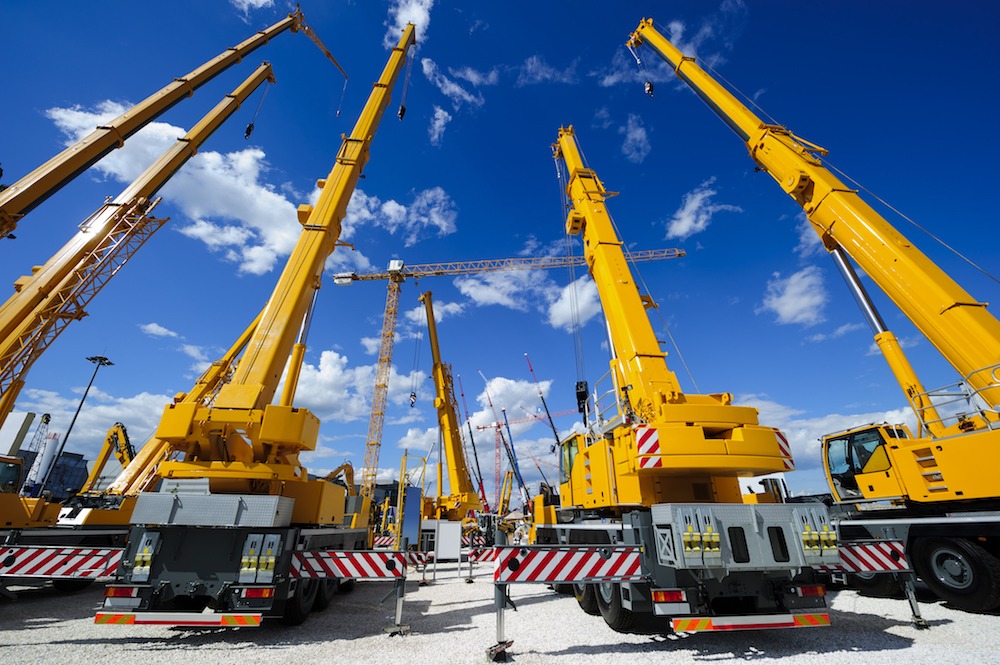Words: Lori Lovely
Photos: AntonMatveev, kzenon
How does a contractor decide if it’s better to rent a piece of equipment or buy it? Several factors affect the decision beyond the obvious capital investment – although the monetary argument is a compelling one when making the final judgment call. On the one hand, purchasing means investing in a depreciating asset, but on the other, renting and paying as you go means having a variable cost that can be matched to your business conditions. Here, we examine both sides of the decision-making process.
The Financial Argument
The amount of investment is substantially less for rental equipment. As Kevin Hoffman, owner and president of A to Z RentAll, says, “You get the job done without having to make the big capital investment. You just have to pay the rent for the amount of time that you need it and then turn it back in.”
But even if you can afford it, should you buy it? When renting during an uncertain economy, if there’s a decline in business, you don’t have to worry about paying for equipment that’s sitting in the yard instead of producing. Hoffman recalls the economic downturn in 2008-09 and says many contractors struggled to pay loans and leases on purchased equipment when business slowed. “Rental serves as a way of being able to keep costs variable, depending on how much business a contractor has.”
Renting – as opposed to purchasing – allows a business owner to preserve their cash, and preserve their credit line, or invest it in another asset that has a higher return. “Rather than buying a $50,000 piece of equipment that you’re only going to use every so often,” Hoffman suggests considering what else you could invest in that would give you a higher return. He advises balance. Rather than take out loans for equipment that may be used infrequently, he says it’s better to reserve operating capital, and “renting is one way of preserving your capital.”
Contractors with business booked twelve to eighteen months in advance are able to better predict equipment needs. If there is a steady need, it is easier to determine if the return on investment justifies equipment purchases. Even so, Hoffman explains that too many purchases tie up capital in fixed assets. Renting is a “highly variable type of an option for obtaining equipment and being able to use it without having to lay out the big capital,” he says further.
Owning equipment entails additional expenses beyond the sticker price, such as insurance costs, maintenance, licensing, and storage. Often, they can be counterbalanced by the financial advantages of ownership, such as depreciation at tax time. “That’s one advantage to buying equipment,” Hoffman admits. “You can claim depreciation on taxes.”
Equipment can also be less expensive to own, especially if it’s something you use frequently. Purchasing equipment that will be used regularly can save money over time because rental costs can add up. Ultimately, Hoffman reasons that the benefits of ownership depend on the efficiencies gained, the frequency of usage, and the outlook for the future of business opportunities within the industry.

Rental Advantages
Renting makes sense for short jobs and jobs that require a specialized piece of equipment not typically used. It enables a contractor to explore niche markets where specialized equipment is needed, and allows contractors to explore different opportunities or extend their capabilities with less risk. “Rental allows you to experiment a little bit, or at least expand your service offering without having to having to fork out a lot of money,” Hoffman explains.
If you’re not sure how much demand there will be to be for any given niche, rental allows you to try it without a big financial commitment, and if you’re considering a purchase, it’s a great way to “test drive” a model under consideration. Meanwhile, rental equipment doesn’t require long-term storage, so if space is tight, renting might make sense.
By renting equipment, you often get to use the newest machinery available. New equipment can be more efficient and typically suffers fewer breakdowns. All equipment requires regular maintenance, but it’s not your responsibility to perform PMs or do repairs on rented machinery. “You should take steps on the job site to keep it in good running order and performing well,” Hoffman clarifies, but for any serious issues, “you just … bring it back or exchange it.”
Not only will this save on downtime and repair costs, but it also saves on labor. Rental companies employ trained technicians who are familiar with all the equipment in their fleet and the latest technology – an expense a contractor can avoid by renting equipment. In areas where there’s a shortage of skilled labor, leaving the maintenance to the rental company can be a relief.
Advantages of Purchase
If you buy it, it’s always available. “You don’t have to worry about calling somebody to reserve it or risk equipment not being available in rental inventory,” says Hoffman. As long as your equipment is in running order, it’s ready whenever it’s needed, which affords the contractor greater flexibility with the schedule to work around weather or other changes.
Beyond a sense of control, knowing the equipment is there, and pride of ownership that the equipment is yours, Hoffman says owning equipment has the benefit of familiarity. You know how to operate it – and you know its quirks. “For equipment that’s used frequently – if you use it every day – you’re probably better off to buy it.”
An Exception
An exception to the rule of purchase for the masonry industry could be telehandlers, which are big, expensive, complex to maintain and to use, and can be difficult to move. “Unless you’re a very large masonry company with a staff that’s qualified to deal with those things, and the trucking capacity to do it, I think you’re probably better off to rent,” Hoffman speculates.
Renting large pieces of equipment like a telehandler provides a “convenience factor,” Hoffman adds, because most rental companies offer delivery. “You can take advantage of their delivery service, rather than having to take one of your own staff and your own trucks or get a trailer.” Letting the rental company handle the logistics removes one task from a contractor’s list.
And a Misconception
The equipment rental industry has evolved significantly since Hoffman’s father started the company in 1954. “Back then, I think the mentality was you just buy equipment and rent it.” While it may still appear to be that simple, today there is more sophistication – and specialization – within the industry. More types of equipment are available to rent and the equipment is newer, entailing telemetry, electronics and complicated systems to master. He estimates the average age of a rental machine at less than four years.
Because equipment is more complex and the industry is more diversified, rental company owners must have more knowledge and training. Furthermore, more of them today are female, bringing a different perspective to the industry.
“We’re providing more than equipment,” Hoffman reflects. “We’re providing solutions to the challenges of ownership, like storage and maintenance and safety issues. Rental has become a very viable and a very important option for contractors.”
Best Practices
As in all business, communication is key and familiarity breeds trust. Hoffman advises getting to know your local rental company and help them understand your business. “If you have specific needs for equipment, let them know. If there [are] certain features you need or certain types of equipment, let them know how often you need it.”
If a customer plans to rent a piece of equipment with regularity, the rental company is going to purchase it. “It’s the same type of criteria for us to invest in a piece of equipment,” Hoffman explains. Before the rental company buys equipment, they “have to think that we’re going to have adequate rental utilization.,” so letting them know what you need and how often you’ll be needing it will impact if it’s in their rental fleet.
Often, same-day or next-day delivery is possible; however, due to the “Amazon effect”, where everything is available quickly, there seems to be less planning ahead. There are high-demand times for certain types of equipment, so Hoffman recommends planning ahead as much as possible.
Most rental companies take reservations. Hoffman says it’s a good idea to reserve equipment to ensure it’s going to be there and the equipment will be prepped and ready. “A lot of times what we’ll do is line the equipment up the night before, gassed up and ready to go, so all they have to do is do the paperwork, get operating and safety instructions, hook up, and leave. It saves everybody a little bit of time and assures that the equipment is going to be there to get your job done.”
Learning the rental company’s policies can avoid a snafu. Is a day twenty-four hours or from open to close? How are weekend hours considered? For example, A to Z RentAll offers weekend rental from Friday afternoon to Monday morning for the cost of a single day.
Is there any flexibility in the rental schedule? Contractors are in a business that’s fluid, with weather, sub-contractors and deadlines continuously impacting the schedule. If a sub-contractor is running behind schedule – or ahead of schedule – it will affect the timing of when rental equipment is needed.
In situations like that, reservations can be difficult to make. But, if you have a good relationship with the rental company, these glitches can be overcome. Hoffman says that, “if you let us know that you need something or [if there is] a special circumstance, there is some room for flexibility, especially if there’s that trust relationship built up.”
For example, he illustrates, if a contractor has an early-morning or out-of-town pour scheduled, there won’t be time to pick up equipment the same morning. Make arrangements to pick up the equipment the evening before. “We would be flexible that way to let them pick the equipment up and start the time the next day, when they’re going to be using it. If you make your rental partner aware of special situations and circumstances, we’re going to see what we can do to accommodate that.”
Finding a Rental
If you do decide to rent equipment, you’ll need to find a conveniently located rental company. For contractors searching for rental equipment in other areas, Hoffman recommends checking the American Rental Association’s rental business locator: RentalHQ.com. Inputting your company’s zip code or the zip code of the area where the equipment is needed will reveal a list of rental companies in the area. “That’s something our trade association offers in terms of being able to locate a rental business.”
